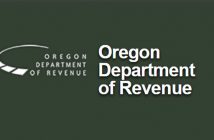Before making the conscious decision to ‘settle down’, raise a family, purchase a lovely home in Bend and start my financial firm in Bend a decade ago, I serendipitously created a life for myself that enabled me to spend a month in each of 65 different countries around the world over a ten year period of time. Most of my sojourns found my one man tent and I in developing countries throughout South and Central America, SE Asia and Africa. This was a time to learn about diverse cultures, political viewpoints and certainly myself.
At first I considered the gracious people in the small villages as being poor as they lived in diminutive houses with dirt floors and absent windows. Families had no cars, televisions, iPods or IRAs. But it did not take long for me to realize that most of the villagers were undeniably happy. Although most Americans may deem they lead grueling and arduous lives, the villagers always seemed to smile a great deal, enjoy each other’s company and work together in harmony. Although they own very little, are they actually poor?
Can you imagine if I shared stories of my home country of markets piled with food flown in from around the world, stories of doctors who gave out pills to stop people from eating, and stories of cars so abundant that they clogged the roads and slowed the traffic to the pace of a bicycle? I pondered how American problems may come from having too much, rather than too little. And because of these problems, we have what most call stress. They would never believe me! They had never heard of the term stress before. They might consider us rich but would they truly consider us wealthy?
Shortly after returning to the states, while eating in a classy restaurant, I watched a woman send her Ahi Tuna steak back to the chef in an aggravated tone because it had been cooked medium instead of medium-rare. Later, I watched a man who was struggling to decide whether to have a fruit plate for dessert and stick to his diet or splurge on an ice cream sundae dripping with caramel and piled with pecans. Does any of this sound familiar?
You are not alone. Many times I am faced with such dilemmas. But I see it as an opportunity to be thankful. Imagine eating Cassava at every meal. Do you know what Cassava is? You will be hard-pressed to see it in American grocery stores. On the outside, it looks a little like a woody shrub. But it tastes like a tough, extra-starchy potato. Cassava is extensively cultivated as an annual crop in tropical regions for its edible starchy tuberous root, a major source of carbohydrates. The folks in the villages learned to cook it creatively. They boiled it, fried it, beat it to a pulp and dipped it in sauce. But every day it was Cassava. Over time I grew so accustomed to it that I ceased to taste it at all.
Some of my clients who are accumulating for their retirement dreams have shared with me that they are working harder than ever before and have successfully increased their standard of living and yet they are feeling less fulfilled. Many are working diligently to acquire ‘things’ and build wealth for their family. This is a dignified ambition and my job is to help guide them so they can eventually live the life that they have always imagined. Many of us share similar goals but I think it is important to ask ourselves if this path of accumulating things is truly leading to a life of abundance and contentment.
I will be the first to admit that it is satisfying to have some of the niceties of life but I also find myself pondering if having more is better. Does it truly bring greater happiness into our lives? I observe people who must work harder and harder to support their acquisitions and this places a great deal of stress on their lives. If we set a goal to acquire possessions, it is important that we build a gap between the costs of servicing the acquisitions and the income we are earning?
I believe one of the keys to life is to live below your means in order to have the time to be happy. Find a way to reduce your stress and increase your joy! Let’s face it; the real measure of wealth is our peace of mind, family, friends and the legacy we leave to others. So when my Ahi Tuna arrives a little too well cooked, or I have to choose between ice cream and fruit, I give thanks for the life I have in America. When was the last time you took a moment out of your busy schedule to give thanks for all that you have? Do you focus on what you don’t have? Or do you celebrate what you have? Gratitude is the gateway to happiness.
David Rosell is President of the Rosell Financial Group in Bend. He is the Past Chairman of the Bend Chamber of Commerce and the Past President of the City Club of Central Oregon. David can be reached at 385-8831 or www.RosellWealthManagement.com
Investment advisory services offered through Rosell Wealth Management, a State Registered Investment Advisor. Securities offered through ValMark Securities, Inc. Member FINRA, SIPC 130 Springside Drive, Ste 300 Akron, Ohio 44333-2431. 800 765-5201. Rosell Wealth Management is a separate entity from ValMark Securities.




